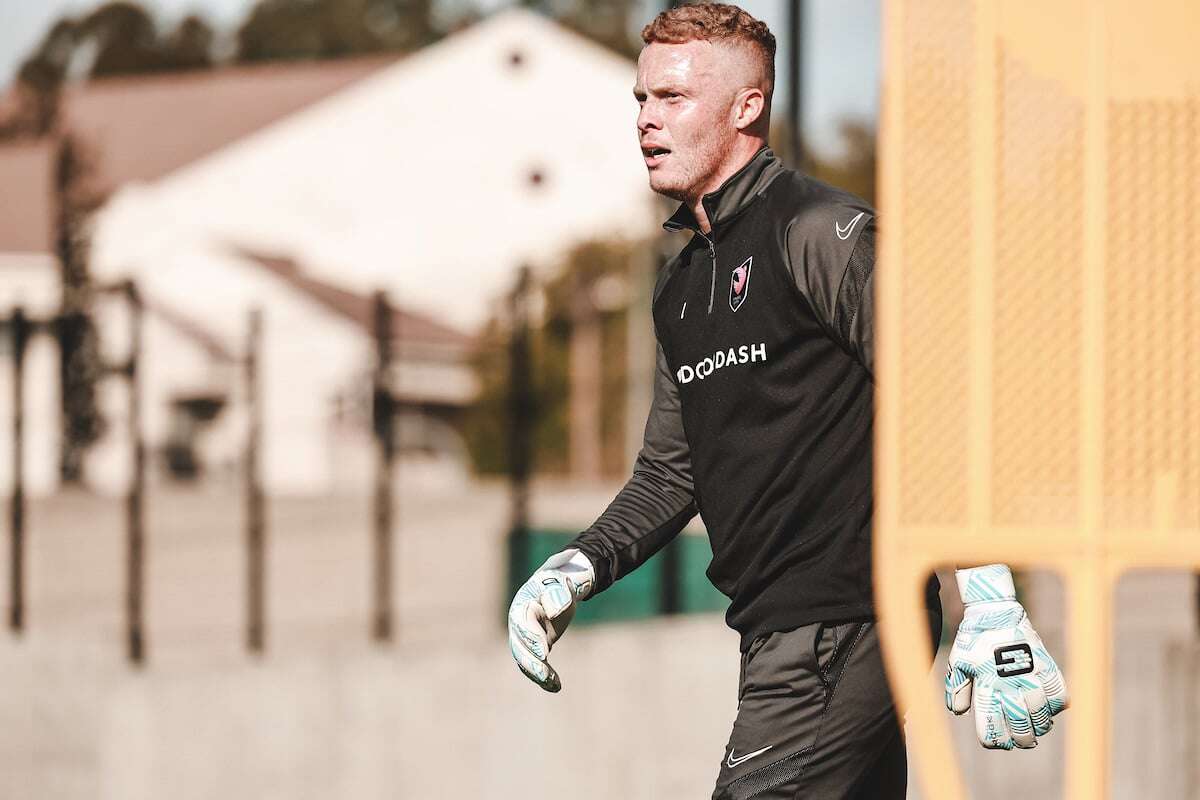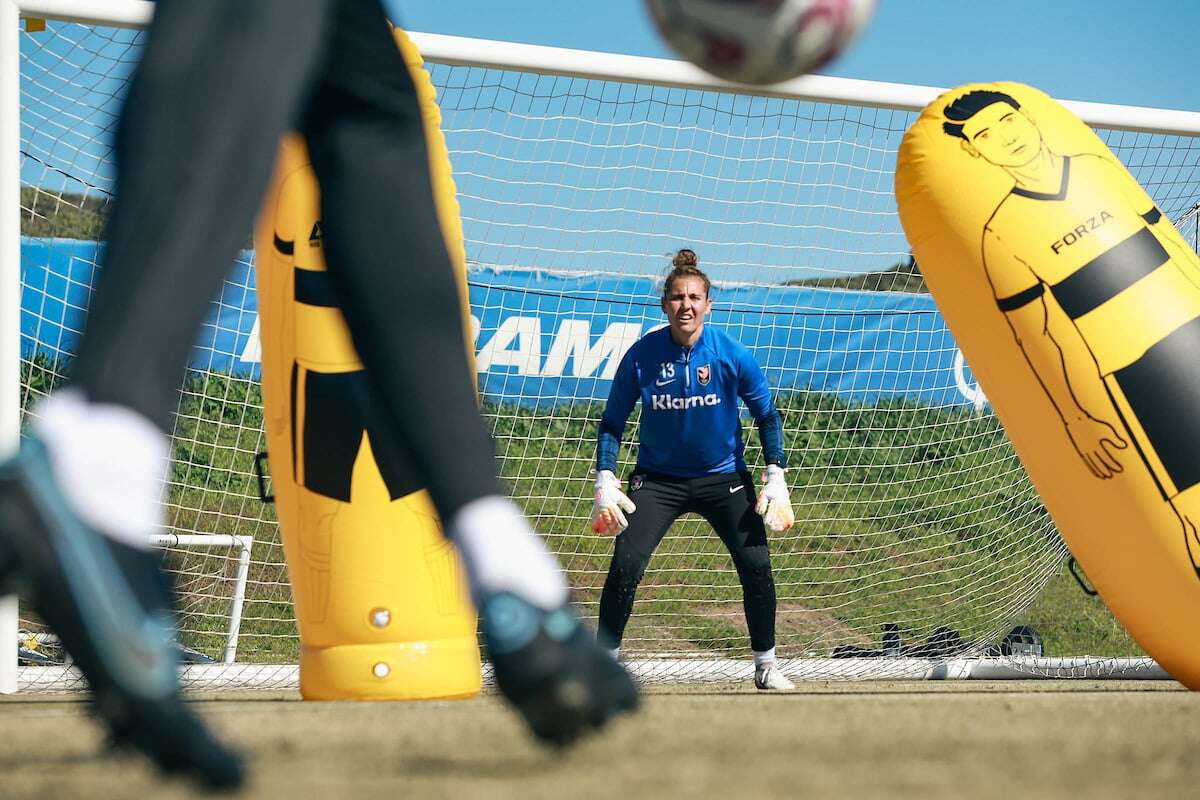.png?width=520&height=294&name=IMG_2277%20(1).png)

Goalkeepers are a rare breed. They have a unique skill set and play by different rules than the other players on the field. They can spend long stretches during games waiting for the action to come to them, and when it does, their performance can be the difference between winning and losing.
And at training, they spend much of the session apart from the rest of the team.
'Being a goalkeeper can be a really lonely thing,' said Angel City Goalkeeping Coach Daniel Ball after training on Tuesday. 'A big part of my job that no one ever really talks about is removing that loneliness as much as possible and making [the keepers] feel like they're part of something bigger.'
A strong goalkeeping unit is a team within a team. The dynamic is both competitive and supportive; they all push each other to get better at the same time as they know only one of them is likely to see playing time.
During preseason, Ball has to balance individual and position-specific development with getting the keepers integrated with the rest of the team and the overall strategy.
'The first part is to get their bodies back on the ground,' says Ball. 'I know a little bit of what they did [in the offseason], but you've got your body primed to last for ten months.'
That means starting slow both fitness-wise and mentally. So far, Ball says, 'everything's been really simple. I've been really protective of them over the last week, making sure that we could tick the boxes that we needed to tick to make sure they wouldn't get injured.'
As they get physically acclimated, the keepers start to take on more mentally demanding work. '[Now] their mind is ready for them to get in with the team,' Ball explains, 'we'll dial it up so there's a lot more decision making, so that over the next three or four weeks as these pre-season games start to come, it all dovetails together.'
To some extent, that cycle gets repeated each week in microcosm. Tuesday was the team's reentry day, their first session back from a two-day break.
'I need to respect those two days off,' says Ball. 'Because their body, for lack of a better phrase, has gone to sleep over two days, and I need to wake it back up again.'
'We start really slow, without much decision making,' he continues. 'Then I also drip some opportunities in there for them to make really special saves, so that both their body and their mind are primed for the next four days.'
After training, players go home and watch film from the day's session, and it's important that they have positives to look back on as well as areas to improve—'equally as important,' Ball says, 'as the amount their heart beats or the sweat that rolls down their face.'
As the week goes on, the keepers work in with the rest of the team. 'Spaces will get bigger,' says Ball. 'The distances that they cover will get bigger. We'll really start to look to put some pieces of the puzzle together from last year—and kind of drip some new ideas in.'
Sessions involving the full team are one reason a strong goalkeeping unit, not just a great starter, is critical: to learn tactical principles, the team needs to train 11v11, and to do that, they need at least two goalkeepers who can give the field players just as much of a challenge as opposing NWSL goalies will.
Although Ball isn't working one on one with the keepers in those sessions, he still has an important role. 'My job in those moments is to afford them the space to make mistakes,' he says. 'They've got to know that they can get in and try things and fail, and it's not going to affect my opinion of them.'






